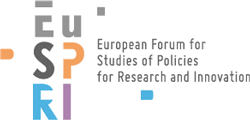Scientific Projects and Institutions
Under Construction
Institutions
Institut Francilien Recherche Innovation Société (IFRIS) 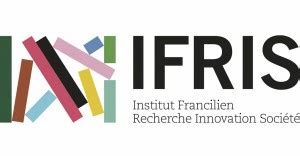
We live in societies where science and technology jointly contribute to constantly recomposing society, economics and the environment, where the production of knowledge is intimately linked to all kinds of power, and where innovation constitutes a universal good. IFRIS focuses on all these issues, on the ways in which knowledge, know-how and technology are deployed, have taken shape in society, culture and politics, are produced and passed on, and create worlds, as well as the modes of action and relationship with others, and the “nature” which they suggest.
Website:http://ifris.org/
European Forum for Studies of Policies for Research and Innovation (EU-SPRI)
The European Forum for Studies of Policies for Research and Innovation (Eu-SPRI Forum) aims to strengthen the vibrant but dispersed interdisciplinary community of researchers focusing on interdisciplinary dimensions related to policy and governance in the field of knowledge creation and innovation.
Website: http://www.euspri-forum.eu/
 Research Platform Responsible Research and Innovation in Academic Practice, University of Vienna
Research Platform Responsible Research and Innovation in Academic Practice, University of Vienna
The aim of the platform is to explore the conditions for responsibility in research and innovation along different topics and in close interdisciplinary collaboration between social sciences and the life sciences.
Website: http://rri.univie.ac.at/en/
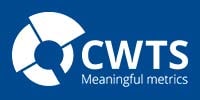 Centre for Science and Technology Studies (CWTS), Leiden University
Centre for Science and Technology Studies (CWTS), Leiden University
The Science & Innovation Studies chair focuses on major relational features of science/innovation ecosystems. Research cooperation between public and private sector, and geographical dimensions of research collaboration partnerships, are two examples.
Website: https://www.cwts.nl/research/chairs/science-innovation-studies
The purpose of the Science Policy Studies chair is to help develop a science of science policy. It focuses on the impact of various types of research and development activities on economic growth and on the career system in research.
Website: https://www.cwts.nl/research/chairs/science-policy-studies
The working group Society Using Research (SURe) focuses on the socio-economic and cultural effects that scientific research results have on society at large; as represented by private, professionals and (lay) public.
Website: https://www.cwts.nl/research/working-groups/societal-impact-of-research
The Munich Center for Technology in Society (MCTS)
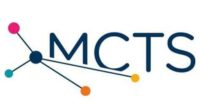
Τhe Munich Center for Technology in Society (MCTS) is an Integrative Research Center at the Technical University of Munich (TUM), dedicated to understanding and reflexively shaping the multiple interactions between science, technology and society.
By addressing the pressing challenges of technoscientific developments, the MCTS engages in interdisciplinary research, teaching and dialogue, by initiating conversations and collaborations between the social sciences, humanities, natural sciences, and engineering.
Website: http://www.mcts.tum.de/en/the-mcts/
Danish Board of Technology Foundation 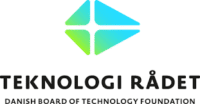
The Danish Board of Technology Foundation is a world-leading institution in the development of citizen engagement methods. It participates in EU research on accountability with regards to scientific research and development. It employs and develops various technology assessment methods in order to advise decision makers about the consequences of the use of new technologies, and it undertakes large-scale citizen consultations both for the EU and for other organizations, both at the local and at the global level.
Website: http://www.tekno.dk/
Scientific Projects
 VIRT-EU Project: “Values and Ethics in Innovation for Responsible Technology in Europe”
VIRT-EU Project: “Values and Ethics in Innovation for Responsible Technology in Europe”
The project includes five European research partners besides ITU: London School of Economics (UK), Open Rights Group (UK), Uppsala University (SE), Politechnico di Torino (IT) and Copenhagen Institute of Interaction Design (DK). The goal of the project is to analyze and map the ethical practices of European hardware and software entrepreneurs, maker and hacker spaces, and community innovators in order to:
- understand how IoT innovators enact ethics as they design future devices,
- generate a new framework for Privacy, Ethical and Social Impact Assessment (PESIA)
- develop tools to support ethical reflection and self-assessment as part the design and development process for IoT technologies.
Project Website: http://www.itu.dk/~rdoj/?page_id=483
 “Public Participation in Developing a Common Framework for Assessment and Management of Sustainable Innovation” ( CASI )
“Public Participation in Developing a Common Framework for Assessment and Management of Sustainable Innovation” ( CASI )
The project is proposed as a response to one of the Grand Challenges set out in the Horizon 2020 programme of the European Union, namely “Climate action, environment resource efficiency and raw materials”.
It represents an EU-wide cross-sectoral partnership on innovation-related challenges and considers not only the impacts of social and technological innovation, but also the types of actors involved and their inherent interests. It thus effectively integrates the perspectives of civil society, SMEs, industry, policy stakeholders, and leading academics.
This collaboration investigates the scope of sustainable innovation as a societal phenomenon and enables the elaboration of an assessment framework of sustainable innovation practices, whose application can be successfully integrated into public policy developments.
Project Website: http://www.casi2020.eu/
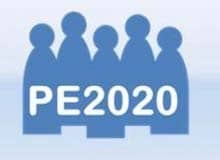 Public Engagement Innovations for Horizon2020 (PE2020)
Public Engagement Innovations for Horizon2020 (PE2020)
The mission of the PE2020-project is to identify, analyse and refine innovative public engagement (PE) tools and instruments for dynamic governance in the field of Science in Society (SiS).
PE2020 continues the work began in the MASIS project (2010-2012), both through its consortium and by going deeper in analysing the PE tools and instruments through a systemic and contextual perspective, and contributing to the potential and transferability of new governance innovations. PE2020 will create new knowledge of the status quo and trends in the field af public engagement in science, refine innovative PE tools and instruments and propose new ones.
Project Website: https://pe2020.eu/
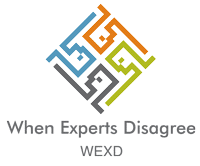 When Experts Disagree : A comparative study of peer disagreement in the natural sciences and its effect on policy decisions
When Experts Disagree : A comparative study of peer disagreement in the natural sciences and its effect on policy decisions
An Interdisciplinary research project funded by the Irish Research Council New Horizons Award Scheme.
Specifically, the project seeks to answer the following questions :
- What are the best ways to understand and deal with peer disagreement among scientific experts who advise policy makers on politically and economically sensive areas such as climate change?
- What are the optimal strategies for choosing and trusting one set of expert opinion over a dissenting one?
- What is the impact of disagreement among scientific experts on policy decisions as well as on the formation of public opinion?
Project Website: http://whenexpertsdisagree.ucd.ie/
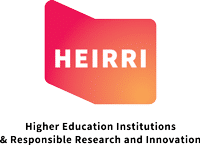 HEIRRI project : Higher Education Institutions & Responsible Research and Innovation
HEIRRI project : Higher Education Institutions & Responsible Research and Innovation
The aim of HEIRRI project (Higher Education Institutions and Responsible Research and Innovation) is to start the integration of RRI within the formal and informal education of future scientists, engineers and other professionals involved in the R+D+i process.
Project Website: http://heirri.eu/

